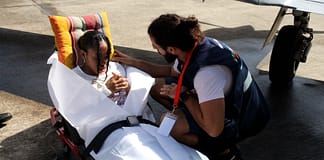
The Court of Appeal of the Eastern Caribbean Supreme Court has upheld the Constitutionality of Antigua and Barbuda’s civil forfeiture regime, which provides for the forfeiting of the proceeds and instrumentalities of crime without the need for a criminal conviction.
The appeal was brought by Ahmed Williams after a forfeiture order was made by Justice Clare Henry against his two parcels of real property. Williams had previously been convicted of possession of cocaine with intent to sell. At trial, Williams maintained that his assets were not obtained through money laundering activity, but the Court ruled to the civil standard, that he had engaged in money laundering activity and that the property was on the balance of probabilities the proceeds of crime.
On appeal, Williams represented by attorney Dr. David Dorsett, argued that forfeiture under Section 20A(2) of the MLPA amounted to a finding of criminal guilt in civil proceedings in which he had not been criminally charged. He also argued that civil forfeiture constituted inhumane treatment.
In a decision delivered by Justice Louise Blenman in July of this year, the Court of Appeal dismissed the appeal of Ahmed Williams challenging the constitutionality of the forfeiture.
Director of the ONDCP, Lt. Col Edward Croft is pleased with the recent decision and thanked Justin Simon QC, and Curtis Bird for their work in this particular case. This recent decision reinforces the precedent previously established that the AML/CFT Civil Forfeiture Regime in Antigua and Barbuda is on a solid foundation. In the newsletter titled DISCLOSURE, by Nicola Suter, the Financial Crimes Advisor, US International Narcotics and Law Enforcement Affairs Section stated, “This judgment is specifically relevant to Antigua and Barbuda however the issues addressed will be relevant to civil recovery cases across the Eastern Caribbean.”
The Court, upholding the argument by Justin Simon, QC on behalf of the Supervisory Authority/ONDCP, held that civil forfeiture is separate and distinct from criminal confiscation, the latter requiring a conviction in a criminal court. Under the civil forfeiture regime, there is no criminal charge, property may be forfeited if the court is satisfied on the balance of probabilities that a defendant’s property was obtained from money laundering activity. The Court of Appeal held that civil asset recovery is civil in nature. It does not therefore infringe protections under sections 15(2)(a) of the Constitution concerning the presumption of innocence and 15(5) of the Constitution concerning double jeopardy.
On the argument that civil forfeiture constituted inhumane treatment, the Court said that it had been long established that the protections under section 7(1) of the Constitution from inhuman treatment was a fundamental protection concerned with a person’s protection from bodily impairment and therefore was not related to property rights.
The Court held that the civil forfeiture regime provides extensive due process guarantees which Mr. Williams took full advantage of. He had a full trial and was given the opportunity to oppose the property freezing order, lead evidence and cross examine witnesses. He was granted the full due process of the law.

Advertise with the mоѕt vіѕіtеd nеwѕ ѕіtе іn Antigua!
We offer fully customizable and flexible digital marketing packages.
Contact us at [email protected]















